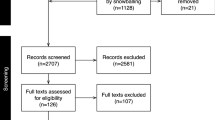Abstract
Advancements in AI and ML approaches are the reason for the current hype of this technology. A lot of products and services, either in consumer-facing solutions, as well as in the industrial context, embrace the advancement of smart algorithms. Designing such systems entails several challenges, including designing for black-box decision-making with a potentially infinite and unknown set of UI manifestations, delivering easy-to-understand explanations, involving end-users in requirements specification and product evaluation, and communication with software engineers and data scientists among others. Although designers are today equipped with several UX tools for capturing and presenting users’ experience with the products they are designing, the question that arises in the AI context is whether and how existing contemporary tools can adapt and scale to support the design of AI-enabled interactive systems. Therefore, AI and ML are perceived as a new design material. This work aims to assist researchers and practitioners involved in AI-infused projects by proposing a framework to collect and document these. The framework was designed following a workshop with representative stakeholders, through which different use cases were presented and elaborated. Evaluation of the framework highlighted that it is an easy to use and useful tool for documenting use cases and communicating them to a wide audience.
Access this chapter
Tax calculation will be finalised at checkout
Purchases are for personal use only
Similar content being viewed by others
Notes
- 1.
- 2.
- 3.
- 4.
- 5.
- 6.
- 7.
- 8.
References
Heier, J., Willmann, J., Wendland, K.: Design intelligence - pitfalls and challenges when designing AI algorithms in B2B factory automation. In: Degen, H., Reinerman-Jones, L. (eds.) HCII 2020. LNCS, vol. 12217, pp. 288–297. Springer, Cham (2020). https://doi.org/10.1007/978-3-030-50334-5_19
Yang, Q., Steinfeld, A., Rosé, C., Zimmerman, J.: Re-examining whether, why, and how human-AI interaction is uniquely difficult to design. In: Proceedings of the 2020 CHI Conference on Human Factors in Computing Systems, pp. 1–13. Association for Computing Machinery, New York (2020)
Dove, G., Halskov, K., Forlizzi, J., Zimmerman, J.: UX Design innovation: challenges for working with machine learning as a design material. In: Proceedings of the 2017 CHI Conference on Human Factors in Computing Systems, pp. 278–288. Association for Computing Machinery, New York (2017). https://doi.org/10.1145/3025453.3025739
Yang, Q.: The role of design in creating machine-learning-enhanced user experience. In: 2017 AAAI Spring Symposium Series (2017)
Margetis, G., Ntoa, S., Antona, M., Stephanidis, C.: Human-centered design of artificial intelligence. In: Salvendy, G., Karwowski, W. (eds.) Handbook of Human Factors and Ergonomics, pp. 1085–1106. Wiley (2021). https://doi.org/10.1002/9781119636113.ch42
Yang, Q., Scuito, A., Zimmerman, J., Forlizzi, J., Steinfeld, A.: Investigating how experienced UX designers effectively work with machine learning. In: Proceedings of the 2018 Designing Interactive Systems Conference, pp. 585–596. Association for Computing Machinery, New York (2018). https://doi.org/10.1145/3196709.3196730
Heier, J.: Design intelligence - taking further steps towards new methods and tools for designing in the age of AI. In: Degen, H., Ntoa, S. (eds.) HCII 2021. LNCS (LNAI), vol. 12797, pp. 202–215. Springer, Cham (2021). https://doi.org/10.1007/978-3-030-77772-2_13
Degen, H., Ntoa, S.: From a workshop to a framework for human-centered artificial intelligence. In: Degen, H., Ntoa, S. (eds.) HCII 2021. LNCS (LNAI), vol. 12797, pp. 166–184. Springer, Cham (2021). https://doi.org/10.1007/978-3-030-77772-2_11
Braun, V., Clarke, V.: Using thematic analysis in psychology. Qual. Res. Psychol. 3, 77–101 (2006). https://doi.org/10.1191/1478088706qp063oa
Clarke, V., Braun, V., Hayfield, N.: Thematic analysis. Qual. Psychol.: Pract. Guide Res. Methods 12(3), 297–298 (2015)
Ntoa, S., Margetis, G., Antona, M., Stephanidis, C.: User experience evaluation in intelligent environments: a comprehensive framework. Technologies 9(2), 41 (2021). https://doi.org/10.3390/technologies9020041
Lewis, J.R., Utesch, B.S., Maher, D.E.: UMUX-LITE: when there’s no time for the SUS. In: Proceedings of the SIGCHI Conference on Human Factors in Computing Systems, pp. 2099–2102. Association for Computing Machinery, New York (2013). https://doi.org/10.1145/2470654.2481287
Reichheld, F.F.: The one number you need to grow. Harv. Bus. Rev. 81(12), 46–55 (2003)
Lewis, J.R., Sauro, J.: Item benchmarks for the system usability scale. J. Usability Stud. 13, 158–167 (2018)
Acknowledgements
We want to thank all our workshop participants for their input, time, and contribution: Shreya Chopra, Helmut Degen, Swati Padhee, Thomas Palazollo, Adina Panchea, Robert Reynolds, Nestor Rychtyckyj, Marjorie Skubic (arranged in alphabetical order).
Author information
Authors and Affiliations
Corresponding author
Editor information
Editors and Affiliations
Rights and permissions
Copyright information
© 2022 Springer Nature Switzerland AG
About this paper
Cite this paper
Moosbrugger, J., Ntoa, S. (2022). A Unified Framework to Collect and Document AI-Infused Project Exemplars. In: Chen, J.Y.C., Fragomeni, G., Degen, H., Ntoa, S. (eds) HCI International 2022 – Late Breaking Papers: Interacting with eXtended Reality and Artificial Intelligence. HCII 2022. Lecture Notes in Computer Science, vol 13518. Springer, Cham. https://doi.org/10.1007/978-3-031-21707-4_29
Download citation
DOI: https://doi.org/10.1007/978-3-031-21707-4_29
Published:
Publisher Name: Springer, Cham
Print ISBN: 978-3-031-21706-7
Online ISBN: 978-3-031-21707-4
eBook Packages: Computer ScienceComputer Science (R0)




